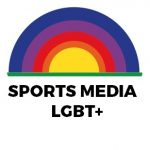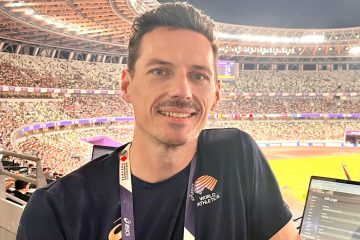The need for welcoming workplaces in sports media

Grant Dalton, a university student and freelance sports journalist, explains his perceptions of the sports media industry, and how he hopes generational change can help to open it up for LGBT people.
Sports, like any other cultural activity, carry with them a heavy load of meaning and implication. Growing up in rural North Yorkshire, I was dimly aware that the school football and rugby teams were ‘not for me’ – just as I began to realise my sexuality.
I was not the sort of person who played school football, and the team had a particular culture and a clique which accompanied it. This was not a clearly defined ‘straight’ atmosphere, but it did not aim for inclusivity in any form.

Sport still appealed to me though, and became a fascination. In the different confines of university, where perhaps some of the schoolyard meanness drops away, I became involved in teams, as well as developing great pleasure in writing about sport.
But sport (especially particular sports like football) will still, in some small way, feel like something I have ‘broken into’. Interest in sports, and this extends to media coverage of sports, is an area with a particularly heteronormative culture, as a result of sport’s long association with certain expectations of rugged masculinity.
Speaking to a pair of older gay friends recently, one expressed sentiments felt by many when he said he was “surprised” that I was so into football as a gay man. He suggested that, growing up, football had appealed to him too – but that he felt that it was a world that he could not delve into.
Sport, and in particular football, carries a baggage of ‘straightness’ and manliness stretching back centuries, and the legacy of the reputation is visible in the shortage of prominent gay sportspeople, in some sports in particular.
This problem is being tackled by brave individuals and organisations both within and outside sports, of which Sports Media LGBT+ is the latest development. But the perception of sport, including sports media, as a straight, cisgender, white and male industry, is still a powerful one.
This may be something of a stereotype, and the make-up of many sports desks is changing fast. But stereotypes and the image of an industry still make a difference. Seeing a Gillette Soccer Saturday line-up of former players turned pundits which is entirely white, male and straight, week in week out, can clearly inhibit some young people from seeing sports media as an industry open to all, regardless of ability.
The crux, perhaps here as in many areas of LGBT+ rights, is a generational shift. Even within my own lifetime, attitudes and laws have changed dramatically. From civil partnership and marriage to recent surveys suggesting increased acceptance of gay players in football, real progress has been made in recent years. Incidents of homophobia usually result in public criticism, such as that levelled at former England and Liverpool footballer John Barnes in recent days.
John Barnes defended his homophobic views on #CBB by talking about being from an older generation. Viewers were having none of it. #CBB https://t.co/eA9b3HgpgJ
— Twitter Moments UK & Ireland (@UKMoments) January 21, 2018
Many in my generation are growing up far more intolerant of homophobia, and more comfortable with the visible presence of LGBT+ people in every walk of public life, as these attitudes have become more status quo from the beginning of our lives.
It is these attitudes that must be imparted by my generation, and which will help workplaces become more tolerant and open places. In turn, this can help make sports media as welcoming as possible to those considering pursuing it as a career. The task, though, is to continue the inclusivity of all-peer environments, like university, into offices up and down the country.

After all, workplace environments, even if filled with the most tolerant of people, offer a different challenge for openness, with more variation of background and age, and more complicated power hierarchies which may make ‘coming out’ in the workplace much harder.
By emphasising the sports media world’s open attitude to people from all sexualities and genders, Sports Media LGBT+ has already helped people like me feel welcome within the industry. Hopefully, as generational attitudes shift and campaigns like theirs raise awareness of LGBT+ issues, the sports media industry will continue to grow more inclusive and diverse.
Follow Grant Dalton on Twitter at @GDaltonSports.

Sports Media LGBT+ is a network group of professionals and newcomers who want to help create a more inclusive industry. Learn more about the group here; drop us an email at info@sportsmedialgbt.com to connect.


